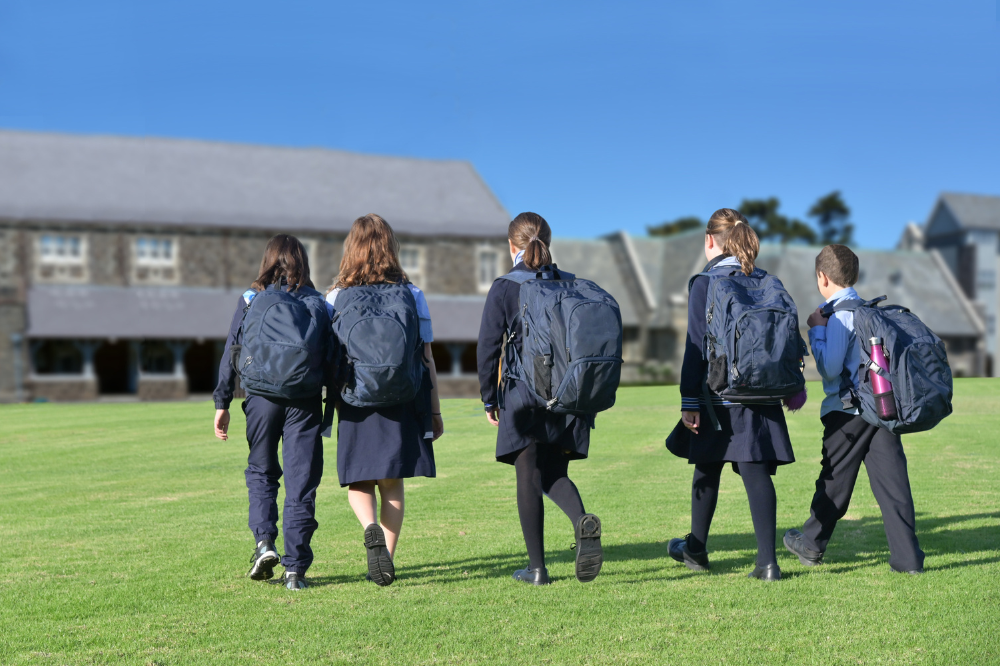
A new report from NAB Education has revealed key insights into the lives of Australian students in 2024, shedding light on both encouraging and concerning trends.
The Special Insights Report, ‘Life at School,’ highlights important issues ranging from school enjoyment to student challenges, while also offering a deeper look into the quality of teaching and the use of private tutoring.
The good news
Australia’s high school students report enjoying school more than they did in 2023, with Catholic school students rating themselves the happiest. The share of students enjoying school was next highest at private schools and was basically unchanged from last year. While school enjoyment was lowest among public school students, levels had improved since 2023.
In another positive finding, Australian students scored themselves highest (and at relatively elevated levels) in Spelling and Maths & Numeracy, with scores showing improvement over last year. Students also rated themselves highly in Sciences and Reading, Writing & Expression, both of which also showed higher scores than in 2023.
Encouragingly, students rated themselves higher in most other curriculum areas, including Physical Education, Social Sciences, and Languages. Scores for Technology (such as IT) remained essentially the same as last year.
Importantly, the proportion of students who rated themselves as ‘low’ decreased in most areas of the school curriculum or remained largely unchanged.
The bad news
While a large (and unchanged) number of students (23%) continue to report low levels of enjoyment at school, those who identify as LGBTQI+ experienced even lower levels, with an alarming 34% saying they are unhappy at school, compared to their peers.
The report also highlighted growing concerns among students, particularly around sexual harassment, which has replaced pressure to try drugs and alcohol as the top issue in schools.
Bullying also remains a significant and escalating problem in Australia’s schools, followed closely by concerns about student diversity, pressure to smoke or vape, and religious bias.
Worryingly, all of these issues worsened compared to last year, indicating a growing need for schools to address these challenges more effectively. Interestingly, boys reported being more concerned about cyberbullying than girls, marking a notable gender difference in this area.
What students think of their teachers
When students were asked to share the qualities of their best teachers, the most valued traits remained consistent with last year.
Topping the list were teachers who were ‘engaging, funny, and creative’ and ‘didn’t just sit back and lecture them’—a trait identified as most important by around 50% of students, up slightly from last year.
Second place went to teachers who had a positive attitude and built confidence and motivated students. Completing the top five were teachers who:
- Respected students, valuing each person’s ideas and opinions
- Treated students as individuals
- Showed empathy, understanding what was going on in their lives
- Recognized different learning styles and paces
- Demonstrated a love of learning and passion for their subject.
At private independent schools, a higher number of students valued teachers who respected students, valued diverse ideas, and connected subjects to real-life applications, including hobbies, sports, and future careers.
At private Catholic schools, students appreciated teachers who set high expectations and encouraged them to achieve their best, while at public schools, patience stood out, with students appreciating teachers who didn’t rush them and who enjoyed working with children.
Some interesting gender differences were also highlighted in the report, with noticeably more girls valuing teachers who created a welcoming learning environment, recognised different learning styles, and varied teaching methods to make lessons more engaging.
More boys appreciated teachers who connected lessons to real life, hobbies, sports, and career pathways.
Among LGBTQI+ students, standout qualities in great teachers included treating students as individuals, showing empathy, adapting teaching methods to make learning more interesting, and being well-prepared and organized in the classroom.
Complex issues burdening schools
Dean Pearson, Head of Behavioural & Industry Economics at NAB, said the report’s findings highlight both the challenges and opportunities Australian students and schools are currently experiencing.
“With unparalleled access to numerous schools across the country, NAB intimately understands the issues they are facing,” Pearson told The Educator.
“This report will help key decision makers better understand their operating environment and identify the financial support they may need to help them bring their masterplans to life.”
Pearson said while student wellbeing is a shared responsibility, schools are being increasingly burdened with solving complex - often societal - wellbeing issues.
“While this report isn’t a measure of how ‘fun’ life at school is, it does give us an insight into what Australian students are feeling and how schools, leaders, parents and communities can adapt.”


